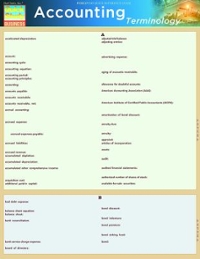Question
Goldjet is the second largest aerospace company in the world, with operations in passenger and military transport aircraft manufacture, meteorological and global positioning systems, satellite
Goldjet is the second largest aerospace company in the world, with operations in passenger and military transport aircraft manufacture, meteorological and global positioning systems, satellite services and rocket propulsion systems, and over 55,000 employees world-wide. In 2013, it delivered, on average, one aircraft a day and achieved over 25 billion dollars in consolidated revenues. Manufacturing operations of Goldjet are based in the south of France. Goldjet is listed on the New York Stock Exchange and reports in US dollars.
Goldjet's only competitor of similar size is BAFA, which is based in Seattle. Together, the two companies command over 70 percent of the combined global market for orbital satellites and aircraft manufacturing. In recent years, BAFA has engaged in an aggressive acquisitions policy in Europe which has resulted in BAFA controlling many of the companies that supply parts and engineering expertise to Goldjet's French operating facility. Despite a current strong order book of 1,100 orders for new aircraft, Goldjet is engaging in an extensive research and development program from 2013 to 2016 in an effort to counter the threat of a takeover bid from BAFA.
Exhibit 1 presents profitability and capital management performance data as used by analysts of the aerospace industry.
The consolidated financial statements for Goldjet for 2009 through to 2013 appear in Exhibit 2 (income statement) and Exhibit 3 (balance sheet). Exhibit 4 displays consolidated statements of cash flows for 2011 through to 2013.
The following information is contained in the notes to the financial statements for the 2013 year:
- Change in Accounting Principle
- Effective on January 1, 2013, Goldjet changed its method of accounting for research and development expenses. Prior to 2013, Goldjet capitalised research and development expenses that could be associated with contracted projects, amortising those deferred expenses over a ten-year period. Goldjet changed its policy in 2013 to defer research and development expenses considered likely to result in sales. Goldjet, complying with the demands of its auditors, also changed its amortisation period for deferred expenses to five years. The net effect of the accounting changes was to record a pre-tax benefit of $333 million ($216.4 million after taxes) in 2013.
- Subsequent Event
- Goldjet's strategy to expand research and development required the issue of new debt instruments through 2012 and 2013 to provide for necessary cash reserves. As at December 31, 2013, Goldjet was planning a three-stage issue of private debenture securities with Golden Bank, Goldjet's major debt-holder. The total issue, which will be made over 2014 to 2016, will amount to $1.4 billion, payable over twenty-five years and offering an annualised coupon rate of 7.8 percent. The date of the first stage of the debenture issue is set for March 31, 2014.
- 3
Golden Bank has introduced a restriction over existing debt issued to Goldjet that any new debt with similar or higher seniority to the bank's debt be first approved by the bank. Other debt-holders have also required Goldjet to subscribe to a number of covenants on existing debt instruments. These covenants include maintaining minimum revenues to debt coverage ratio of 10, minimum revenues to net working capital balance ratio of 5, a maximum ratio of total liabilities to net worth (total equity) of 50 percent, and a maximum ratio of capital expenditures to earnings before interest, depreciation, and amortization (EBITDA) of 20 percent.
Assume that the statutory corporate income taxation rate is 35 percent in each year.
Requirements:
1. Given information provided, clearly identify and explain Goldjet's key risks and strengths (i.e., key risk and profit drivers) in its business. Hint: Identify and explain two key risks and two key strengths, respectively.
Step by Step Solution
There are 3 Steps involved in it
Step: 1

Get Instant Access to Expert-Tailored Solutions
See step-by-step solutions with expert insights and AI powered tools for academic success
Step: 2

Step: 3

Ace Your Homework with AI
Get the answers you need in no time with our AI-driven, step-by-step assistance
Get Started


